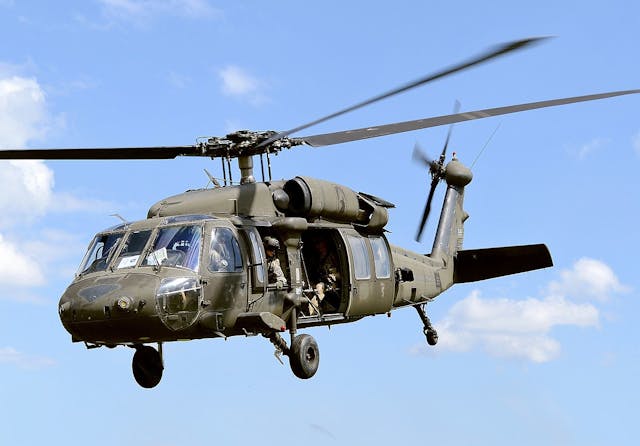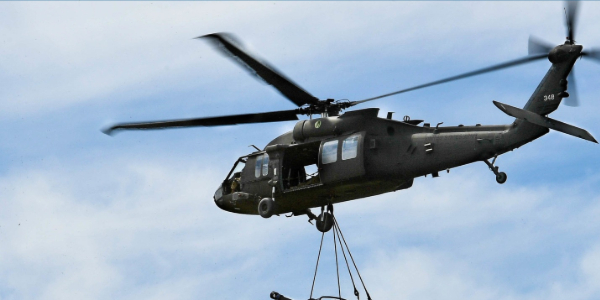UH 60 Black Hawk: Secret Attributes and Developments
UH 60 Black Hawk: Secret Attributes and Developments
Blog Article
The Effect of Sustainable Practices on the Future of Aircraft Procedures and Emissions Decrease
As the aeronautics sector faces enhancing scrutiny over its ecological effect, the adoption of lasting methods emerges as a critical path towards future airplane procedures and emissions reduction. Advancements in lasting air travel fuels and innovations in crossbreed propulsion innovations stand at the forefront of this change, encouraging substantial decreases in greenhouse gas exhausts.

Review of Lasting Practices
Lasting methods in aircraft operations incorporate a variety of methods aimed at minimizing environmental impact while keeping operational efficiency. These methods are essential in the aeronautics market's dedication to minimizing its carbon impact and sticking to global ecological requirements. Secret initiatives consist of enhancing trip courses to reduce gas intake, enhancing maintenance protocols to make certain airplane operate at peak efficiency, and carrying out advanced innovations such as winglets and light-weight materials that improve aerodynamics.

Engaging and training personnel on sustainability methods likewise play a crucial role, fostering a culture of ecological obligation within organizations. Overall, the combination of these lasting techniques not only helps in reducing exhausts yet also improves the long-lasting stability of the aeronautics field, guaranteeing it satisfies the needs of both clients and governing bodies while adding to worldwide sustainability objectives.
Ingenious Fuel Alternatives
Various ingenious gas choices are becoming crucial options to minimize the aeronautics sector's dependence on typical fossil gas. Amongst these choices, Lasting Aeronautics Gas (SAFs) have actually gotten substantial focus due to their potential to lower lifecycle greenhouse gas exhausts by approximately 80% contrasted to traditional jet gas. SAFs are originated from different feedstocks, consisting of waste oils, farming residues, and also algae, making them a flexible choice for the sector.
One more appealing option is hydrogen fuel, which, when made use of in fuel cells, generates just water vapor as a result. This zero-emission prospective presents a significant possibility for decarbonizing flight operations, particularly for short-haul trips and regional airplane. Furthermore, electric propulsion systems are being discovered, leveraging battery modern technology to power aircraft. While existing battery ability restrictions variety and payload, continuous developments may soon render electric trips practical for certain applications - uh 60.
Last but not least, biofuels stemmed from biomass are being explored, using a sustainable alternative that can be mixed with traditional fuels. Jointly, these ingenious gas options represent an essential action towards achieving a lasting aviation community, straightening with worldwide exhausts reduction targets and boosting the industry's ecological stewardship.
Technological Improvements in Aeronautics

Just how can technical advancements improve the future of aviation? Innovations such as electric and hybrid propulsion systems are at the center, encouraging considerable decreases in gas consumption and greenhouse gas emissions.
Moreover, the execution of sophisticated products, such as lightweight compounds, contributes to enhanced the rules of aerodynamics and gas effectiveness. The use of expert system and artificial intelligence in trip operations maximizes route preparation and decreases gas shed by enabling real-time adjustments based upon weather and web traffic problems. In addition, the development of independent and remotely piloted airplane systems stands to transform freight and passenger transportation, potentially raising efficiency while decreasing human error.
Additionally, sustainable aeronautics modern technologies, including innovative air website traffic monitoring systems, can simplify operations and minimize congestion, resulting in lower emissions during trip. These advancements collectively represent a standard change in aeronautics, promising a future where sustainability and operational effectiveness are linked, thus supporting the sector's dedication to minimizing its environmental effect.

Governing Structure and Compliance
Because of the expanding focus on environmental stewardship within the air travel market, the governing structure governing aircraft operations is progressing to promote sustainable techniques. Regulative bodies, such as the International Civil Aeronautics Organization (ICAO) and different national aviation authorities, are presenting rigorous guidelines targeted at decreasing emissions and enhancing operational efficiency.
These regulations commonly consist of the adoption of Sustainable Aviation Fuel (SAF), which has actually been identified as a crucial element in achieving reduced carbon impacts. In addition, conformity with these regulations needs airline companies to apply advanced technologies and functional methods, such as optimized trip paths and enhanced air web traffic administration, to lessen gas usage.
Furthermore, the enforcement of exhausts trading plans and carbon countering initiatives is coming to be progressively widespread, engaging airlines to keep an eye on and report their discharges precisely. Non-compliance can lead to substantial penalties, hence pressing operators to focus on sustainability in their company versions.
Inevitably, the developing governing landscape not just drives development and financial investment in eco-friendly modern technologies yet likewise fosters a society of responsibility within the aeronautics market. As these frameworks remain to establish, the concentrate on lasting techniques will certainly be integral to accomplishing the market's long-term ecological objectives.
Future Fads in Aircraft Procedures
As the aeronautics industry adapts to an increasingly rigorous governing environment, future patterns in airplane procedures are readied to focus on ingenious solutions that even more enhance sustainability and performance - uh 60. Trick developments will likely include the fostering of innovative air website traffic management systems, which utilize real-time information and synthetic intelligence to optimize trip courses, decreasing gas consumption and exhausts
One more substantial pattern is the increased integration of lasting aeronautics fuels (SAFs) These alternatives to traditional jet gas, originated explanation from sustainable resources, can dramatically lower lifecycle greenhouse gas emissions. The sector's dedication to SAFs will likely speed up as airline companies team up with gas manufacturers to guarantee availability and cost-effectiveness.
Furthermore, the push towards electrification and hybrid propulsion systems is acquiring momentum. Arising airplane designs will certainly integrate these technologies, supplying quieter and more efficient procedures, particularly for short-haul flights.
Final Thought
Finally, read this the combination of lasting methods in aircraft procedures holds substantial possibility for emissions reduction and improved performance. The fostering of lasting aviation fuels, coupled with advancements in hybrid and electrical propulsion systems, is vital for decreasing lifecycle greenhouse gas exhausts. Optimizing trip paths and embracing innovative innovations add to a quieter and extra ecologically friendly aeronautics industry. Collectively, these initiatives align with international sustainability objectives and pave the means for a greener future in air travel.
Technologies in lasting aeronautics fuels and developments in hybrid propulsion technologies stand at the leading edge of this improvement, promising considerable decreases in greenhouse gas discharges.Countless innovative gas alternatives are arising as essential solutions to decrease the aeronautics sector's reliance on standard fossil fuels - uh 60. Amongst these choices, Lasting Aviation Fuels (SAFs) have actually gained considerable interest due to their possible to lower lifecycle greenhouse gas exhausts by up to 80% compared to conventional jet pop over to this web-site fuels.Another substantial pattern is the boosted combination of lasting aviation gas (SAFs) The adoption of sustainable air travel fuels, coupled with developments in hybrid and electric propulsion systems, is vital for reducing lifecycle greenhouse gas exhausts
Report this page